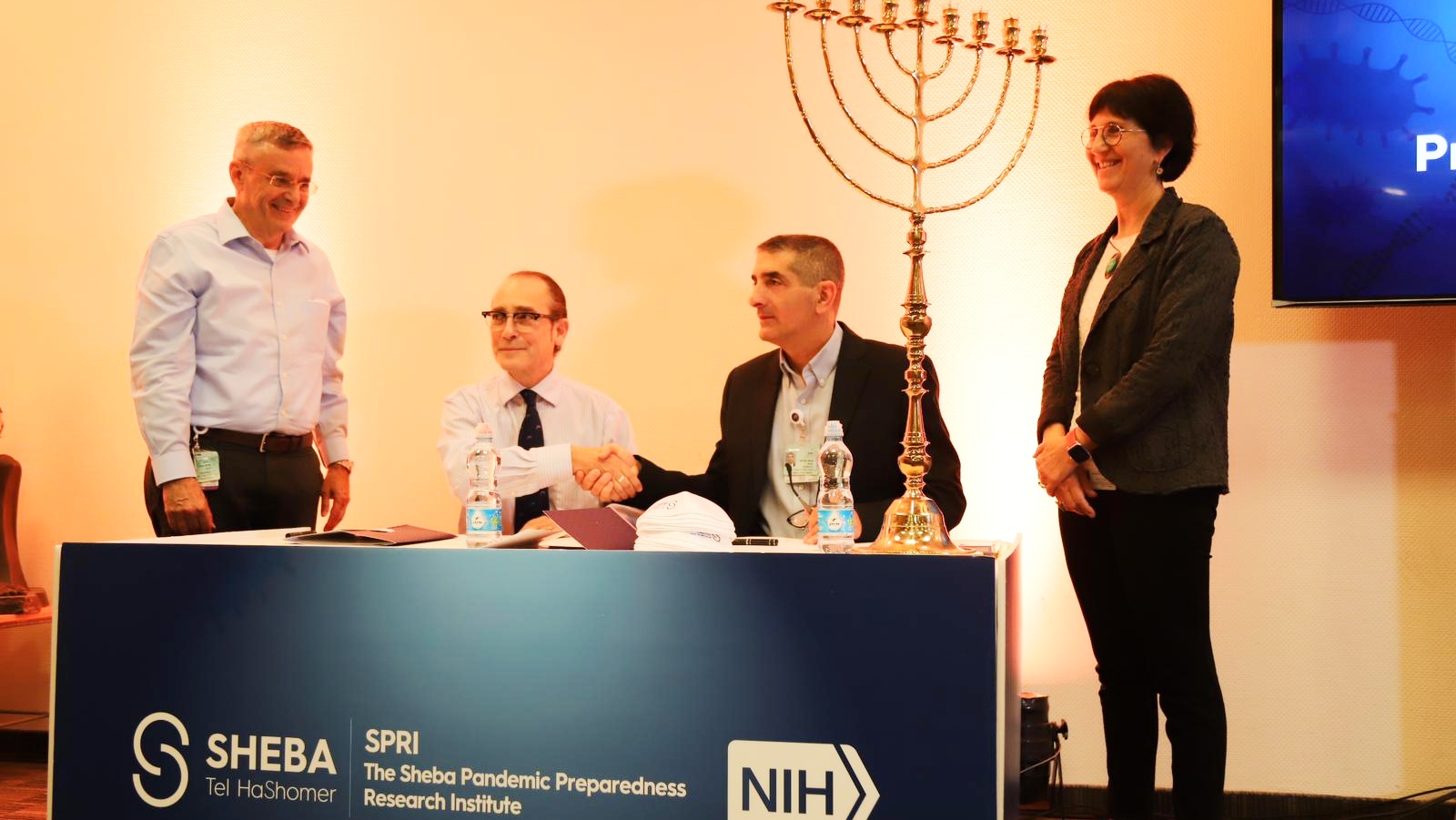The US National Institutes of Health (NIH) is partnering in the establishment of the Sheba Pandemic Research Institute (SPRI) at Sheba Medical Center, Israel’s largest medical center and a Newsweek top-10 ranked world’s best hospital for the last four years.
The institute will facilitate multidisciplinary collaborative research on global infectious diseases and will work toward bringing the findings of that research into clinical settings quickly in the event of future epidemics and pandemics.
“The establishment of the Sheba Pandemic Research Institute represents a significant milestone in our ongoing efforts to prevent and combat future epidemics and pandemics,” said Prof. Gili Regev-Yochay, director of the Sheba Pandemic Research Institute and Infectious Diseases Unit at Sheba Medical Center.
“Together with the NIH, we hope that the discovery of pathogens and infectious diseases can be translated into health outcomes that not only improve but protect the lives of patients worldwide.”
The establishment of the institute follows recent Sheba-led research published in the New England Journal of Medicine about mRNA Covid vaccine booster doses, based on a cohort of some 10,000 staff members at Sheba who have been part of an ongoing study measuring the efficacy of Covid vaccines.
Working directly with the NIH Vaccine Research Center in Maryland, SPRI researchers will prioritize innovation in diagnosis of emerging pathogens and epidemiologic aimed at contributing to predictions of future viral and bacterial threats.
“The core of the National Institutes of Health and Vaccine Research Center mission is the application of scientific and technological knowledge to design and develop vaccines and biologics against infectious diseases” said Prof. Daniel Douek, chief of the Human Immunology Section of the HIH Vaccine Research Center and senior scientific advisor of the Sheba Pandemic Research Institute. “Together with Sheba, we can turn discovery into real health advances.”
Fighting for Israel's truth
We cover what makes life in Israel so special — it's people. A non-profit organization, ISRAEL21c's team of journalists are committed to telling stories that humanize Israelis and show their positive impact on our world. You can bring these stories to life by making a donation of $6/month.









